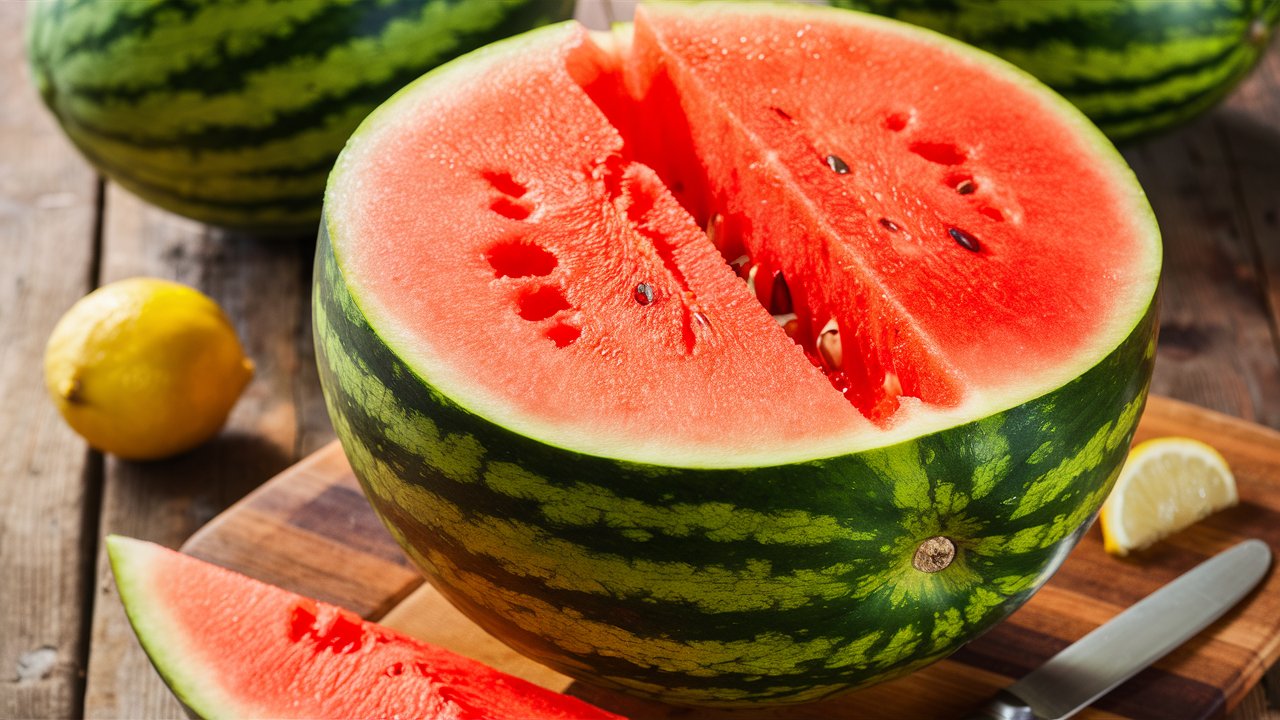Order fresh fruits delivered to your home
All types of fruits on our website
Apple

Apple is a delicious and nutritious fruit that is loved by many people around the world. It is a versatile fruit that can be enjoyed in many different ways, whether eaten fresh, baked into pies, or pressed into juice. Apples come in a variety of colors, shapes, and flavors, making them a popular choice for a snack or ingredient in a wide range of dishes.
One of the key benefits of apples is their high nutritional value. They are a good source of dietary fiber, vitamin C, and various antioxidants. Fiber is important for digestion and can help promote feelings of fullness, making apples a great choice for those looking to maintain a healthy weight. Vitamin C is known for its immune-boosting properties, helping to protect the body from illnesses and infections. Antioxidants found in apples can help reduce inflammation in the body and lower the risk of chronic diseases.
In addition to their nutritional value, apples have several other health benefits. They are low in calories and fat, making them a great option for those looking to control their weight. The natural sugars found in apples provide a quick source of energy, making them a perfect snack for an afternoon pick-me-up. Apples also contain phytochemicals, which have been shown to help reduce the risk of heart disease, diabetes, and certain types of cancer.
Apples are also good for oral health. Chewing on a crunchy apple can help clean and stimulate the gums, reducing the risk of gum disease and cavities. The natural acids in apples can also help to kill bacteria in the mouth, freshening breath and promoting overall oral health.
One of the interesting things about apples is that they are a sustainable fruit. They can be stored for long periods of time, making them a convenient option for those looking to reduce food waste. Apple peels are also a good source of pectin, a type of fiber that can be used to make jams and jellies. The apple industry is a major contributor to many economies around the world, providing jobs for farmers, packers, and distributors.
Overall, apples are a delicious and nutritious fruit that can be enjoyed in a variety of ways. Whether eaten on its own or used in cooking and baking, apples are a versatile and healthy addition to any diet. With their high nutritional value, health benefits, and sustainability, it's no wonder that apples are one of the most popular fruits in the world.
Banana
Bananas are one of the world's most popular fruits, loved for their sweet flavor, convenient packaging, and array of health benefits. This tropical fruit not only tastes delicious but also provides a range of essential nutrients that can promote overall health and well-being.
One of the most notable benefits of bananas is their high potassium content. Potassium is a vital mineral that helps regulate blood pressure, maintain proper muscle function, and support heart health. Consuming potassium-rich foods like bananas can help prevent the risk of hypertension and other cardiovascular issues. In fact, bananas are often recommended as a natural remedy for high blood pressure due to their potassium content.
Bananas are also a good source of dietary fiber, which can aid in digestion and promote a healthy gut. Fiber helps regulate bowel movements, prevent constipation, and support a healthy balance of gut bacteria. Additionally, the fiber in bananas can help lower cholesterol levels and improve satiety, making them a great snack for weight management.
In addition to potassium and fiber, bananas contain a variety of vitamins and minerals that are essential for overall health. Bananas are rich in vitamin C, which is an antioxidant that helps protect cells from damage and boosts the immune system. They also contain vitamin B6, which is important for brain function and the production of neurotransmitters like serotonin and dopamine.
Bananas are a convenient and portable snack that can be enjoyed on the go or incorporated into a variety of dishes. They can be added to smoothies, oatmeal, yogurt, or baked goods for a natural sweetness and creamy texture. Bananas can even be used as a healthier alternative to sugar in baking, as their natural sugars can add sweetness without the need for added sugars or sweeteners.
In conclusion, bananas are a versatile and nutritious fruit that can offer a wide range of health benefits. Whether you enjoy them on their own or use them in recipes, bananas are a delicious way to boost your potassium intake, support digestion, and nourish your body with essential vitamins and minerals. So next time you're looking for a healthy and convenient snack, reach for a banana and enjoy all the goodness this tropical fruit has to offer.

Orange

Oranges are one of the most popular fruits in the world, loved for their sweet and tangy flavor as well as their bright and vibrant color. They are not only delicious, but also incredibly good for our health, packed with essential nutrients and antioxidants. In this article, we will explore the many benefits of oranges and why you should include them in your diet.
Oranges are an excellent source of vitamin C, which is essential for a healthy immune system. Vitamin C helps the body to produce white blood cells, which are crucial for fighting off infections and boosting the immune response. It also helps to protect cells from damage and promote a healthy skin, as vitamin C is a key component of collagen, a protein that keeps skin looking firm and youthful.
In addition to vitamin C, oranges are a good source of other important nutrients, including fiber, potassium, and vitamin A. Fiber is important for digestive health and helps to prevent constipation, while potassium is essential for heart health and helps to regulate blood pressure. Vitamin A is important for vision and helps to maintain healthy skin and mucous membranes.
Oranges are also rich in antioxidants, which help to protect cells from damage caused by free radicals. Free radicals are unstable molecules that can cause oxidative stress, which has been linked to a variety of chronic diseases including cancer and heart disease. Antioxidants help to neutralize these free radicals and reduce the risk of these diseases.
One of the most well-known antioxidants in oranges is hesperidin, a flavonoid that has been shown to have anti-inflammatory and anti-cancer properties. Hesperidin is also thought to help reduce cholesterol levels and improve heart health, making oranges a heart-healthy fruit.
Oranges are also a good source of folate, which is important for pregnant women as it helps to prevent neural tube defects in babies. Folate is also important for maintaining healthy red blood cells and for the synthesis of DNA and RNA.
Eating oranges regularly can also help to improve digestion, as the high fiber content can help to prevent constipation and promote regular bowel movements. The natural sugars in oranges can also provide a quick source of energy, making them a great snack for a quick pick-me-up.
In conclusion, oranges are a delicious and nutritious fruit that offer a wide range of health benefits. From boosting the immune system to improving heart health and digestion, oranges are a versatile fruit that can be enjoyed in many different ways. So next time you reach for a snack, consider grabbing an orange and reaping the many benefits it has to offer.
Strawberry
Strawberries are a delicious and nutritious fruit that are loved by many people around the world. They are not only tasty, but also packed with vitamins, minerals, and antioxidants that offer numerous health benefits. In this article, we will explore the description and beneficial properties of strawberries in more detail.
Strawberries are bright red, juicy fruits that are heart-shaped and have small seeds on the surface. They have a sweet and slightly tart flavor that is loved by both adults and children. Strawberries are often enjoyed fresh on their own, but they can also be used in a variety of desserts, snacks, and beverages.
One of the key benefits of strawberries is their high vitamin C content. Vitamin C is a powerful antioxidant that helps boost the immune system, promote healthy skin, and reduce inflammation in the body. Just one cup of strawberries provides more than 100% of the recommended daily intake of vitamin C, making them an excellent choice for maintaining overall health.
In addition to vitamin C, strawberries also contain other important nutrients such as fiber, manganese, and folate. Fiber is important for digestive health and can help prevent constipation and improve overall gut function. Manganese plays a role in bone health, metabolism, and antioxidant defense in the body. Folate is essential for proper cell division and can help prevent birth defects in pregnant women.
Strawberries are also rich in antioxidants such as anthocyanins, ellagic acid, and quercetin. These compounds help protect the body against oxidative stress and inflammation, which are linked to chronic diseases such as heart disease, cancer, and diabetes. The antioxidants in strawberries may also help improve brain function, reduce cholesterol levels, and lower blood pressure.
Another benefit of strawberries is their low calorie and sugar content. One cup of strawberries contains only about 50 calories and 7 grams of sugar, making them a great option for those looking to manage their weight or blood sugar levels. Strawberries are also a good source of water, which can help keep you hydrated and full throughout the day.
In conclusion, strawberries are a delicious and nutritious fruit that offer a wide range of health benefits. From their high vitamin C content to their antioxidant properties, strawberries are a great addition to a healthy diet. So next time you're at the grocery store, be sure to pick up some fresh strawberries and enjoy all the goodness they have to offer.

Grapefruit

Grapefruit is a subtropical citrus fruit known for its slightly bitter taste and vibrant pink or yellow color. This fruit is not only delicious but also packed with health benefits, making it a popular choice for many people around the world.
Grapefruit is rich in essential nutrients such as vitamins A, C, and E, as well as antioxidants and fiber. These nutrients play a crucial role in promoting overall health and well-being. Vitamin C, in particular, is known for its immune-boosting properties and ability to protect the body against harmful pathogens.
One of the most notable health benefits of grapefruit is its ability to aid in weight loss. This fruit is low in calories but high in fiber, making it a great choice for those looking to shed a few pounds. The fiber content in grapefruit also helps promote feelings of fullness and reduce overall calorie intake, making it easier to stick to a healthy diet.
Grapefruit is also known for its cardiovascular benefits. The antioxidants present in this fruit help reduce inflammation and improve heart health. Additionally, grapefruit may help lower cholesterol levels and reduce the risk of heart disease when consumed as part of a balanced diet.
Another key benefit of grapefruit is its potential to improve digestion. The fiber content in grapefruit can help regulate bowel movements and prevent constipation. Additionally, the enzymes present in grapefruit aid in the digestion of food, making it easier for the body to absorb essential nutrients.
Grapefruit is also a great source of hydration, as it is composed of over 90% water. Staying properly hydrated is essential for maintaining overall health and supporting bodily functions such as temperature regulation and nutrient transportation.
In addition to its nutritional benefits, grapefruit is also believed to have antioxidant properties that may protect against certain types of cancer. Some studies suggest that the antioxidants in grapefruit may help reduce the risk of developing cancer, although more research is needed to confirm these findings.
Overall, grapefruit is a versatile and nutritious fruit that can be enjoyed in a variety of ways. Whether eaten on its own, added to salads, or used in desserts, grapefruit is a delicious and healthy addition to any diet. With its numerous health benefits and refreshing taste, grapefruit is sure to remain a popular choice for many years to come.
Pineapple
Pineapple is a tropical fruit that is not only delicious but also packed with nutrients and health benefits. Originating from South America, the pineapple plant is now grown in many tropical countries and is loved for its sweet and tangy taste.
One of the key nutrients found in pineapple is vitamin C, which is a powerful antioxidant that helps boost the immune system and protect the body from harmful free radicals. Vitamin C is also essential for the growth and repair of tissues in the body, making pineapple a great fruit to include in your diet to support overall health.
In addition to vitamin C, pineapple is also a good source of other vitamins and minerals, including vitamin A, vitamin B6, folate, potassium, and manganese. These nutrients play various roles in the body, from supporting eye health to promoting brain function and muscle function.
Pineapple also contains bromelain, a mixture of enzymes that has been shown to have anti-inflammatory properties. Bromelain has been studied for its potential to reduce inflammation, improve digestion, and even reduce the risk of certain diseases. Consuming pineapple regularly may help reduce swelling, pain, and discomfort associated with conditions like arthritis and other inflammatory disorders.
Another benefit of pineapple is its high fiber content. Fiber is essential for digestive health as it helps promote regular bowel movements, prevent constipation, and support a healthy gut microbiome. Including pineapple in your diet can help improve digestion and maintain a healthy digestive system.
Pineapple is also low in calories and fat, making it a great snack option for those looking to manage their weight. Its natural sweetness means you can satisfy your sweet tooth without consuming too much added sugar, making it a healthier alternative to other sugary treats.
Additionally, pineapple is a versatile fruit that can be enjoyed in many ways. You can eat it fresh, add it to smoothies, salads, or salsas, or even grill it for a delicious and unique twist. Its tropical flavor and juiciness make it a popular ingredient in both sweet and savory dishes.
In conclusion, pineapple is not only a delicious and refreshing fruit but also a nutritious food that offers numerous health benefits. From its high vitamin C content to its anti-inflammatory properties and digestive support, pineapple is a valuable addition to a balanced diet. So next time you're looking for a healthy and tasty snack, consider reaching for a juicy slice of pineapple.

Watermelon

Watermelon is a delicious and refreshing fruit that is popular during the summer months. It is known for its bright red flesh, which is sweet and juicy, as well as its green rind with dark green stripes. Watermelon is not only tasty, but it also has a number of health benefits.
One of the main benefits of watermelon is its high water content. As the name suggests, watermelon is made up of mostly water, which makes it a hydrating and thirst-quenching food. This makes it a great snack to enjoy on a hot day, helping to keep you cool and hydrated. In addition to its high water content, watermelon is also low in calories, making it a healthy choice for those looking to maintain or lose weight.
Watermelon is also a good source of vitamins and minerals. It is high in vitamin C, which is important for immune function and skin health. It also contains vitamin A, which is essential for eye health, as well as vitamin B6, which helps with brain function. Watermelon is also rich in potassium, which is important for heart health and regulating blood pressure. In addition, watermelon contains antioxidants such as lycopene, which is known for its cancer-fighting properties.
Another benefit of watermelon is its high fiber content. Fiber is important for digestive health, as it helps to promote regular bowel movements and prevent constipation. Eating foods high in fiber, such as watermelon, can also help to reduce the risk of heart disease and improve cholesterol levels.
Watermelon is a versatile fruit that can be enjoyed in a variety of ways. It can be eaten on its own, sliced up and added to fruit salads, or blended into smoothies. Watermelon can also be used to make refreshing drinks, such as agua fresca or watermelon juice.
In addition to its health benefits, watermelon is also a great source of hydration for athletes and those who engage in physical activity. Its natural sugars and electrolytes can help to replenish energy stores and restore hydration levels after a workout.
In conclusion, watermelon is a delicious and nutritious fruit that offers a wide range of health benefits. Its high water content, vitamins and minerals, and fiber make it a great snack choice for those looking to stay hydrated and healthy. Whether you enjoy it on its own or in a recipe, watermelon is a tasty and refreshing addition to any diet. So next time you're looking for a sweet and healthy treat, reach for a slice of watermelon and enjoy all its wonderful benefits.
Mango
Mango is a tropical fruit that is known for its sweet and juicy flavor. It is widely popular around the world and is often referred to as the "king of fruits." Mangoes are not only delicious but also boast a number of health benefits.
One of the key benefits of mango is its high vitamin content. Mangoes are a great source of vitamin C, which helps boost the immune system and promote healthy skin. They also contain vitamin A, which is important for eye health and vision. Additionally, mangoes are a good source of dietary fiber, which can aid in digestion and promote overall gut health.
Mangoes also contain antioxidants, such as beta-carotene and quercetin, which help protect the body from disease-causing free radicals. These antioxidants can help reduce inflammation and lower the risk of chronic diseases, such as heart disease and cancer.
In addition to its nutritional benefits, mangoes are also a versatile fruit that can be enjoyed in a variety of ways. They can be eaten fresh on their own, added to smoothies or salads, or used in dishes such as mango salsa or chutney. Mangoes can also be dried and used as a snack or added to trail mix.
From a culinary perspective, mangoes are a popular ingredient in both sweet and savory dishes. They can be used in desserts such as mango sorbet, mango cheesecake, or mango sticky rice. In savory dishes, mangoes can be added to salads, seafood dishes, or curries for a touch of sweetness and acidity.
When selecting mangoes, look for ones that are slightly firm but yield when gently squeezed. Avoid mangoes that are overly soft or have any visible blemishes. To ripen mangoes, leave them at room temperature for a few days until they are soft to the touch.
In conclusion, mangoes are not only delicious but also packed with nutrients and health benefits. Incorporating mangoes into your diet can help boost your immune system, improve digestion, and protect against chronic diseases. So next time you're looking for a healthy and tasty snack, reach for a mango and enjoy all the goodness it has to offer.

With FreshFruit, you can enjoy a wide variety of high-quality, farm-fresh produce without ever having to leave the comfort of your home. From succulent strawberries to juicy oranges, we have everything you need to satisfy your fruit cravings.
So why wait? Head over to FreshFruit today and start filling your cart with the freshest and most delicious fruits around. Your taste buds will thank you!
